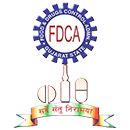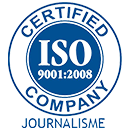
EXPORTING
COUNTRIES

YEARS OF
EXPERIENCE

CLIENTS
GLOBALLY

Product
Lines

READY
DOSSIERS
“For The Healthier Humankind”
The definition of Actiza is “Active zeal”. We have an active zeal for a healthier world. Actiza Pharmaceutical Pvt. Ltd. has become a paradigm in pharmaceutical manufacturing, exporting, and supplying products that meet international standards. Actiza believes in a systematic approach to all its endeavours. Hence, we have WHO, GMP, and ISO accreditations for our business. India has been a hub for medical tourism, and now it has become an epicentre for pharmaceutical manufacturing, alongside the world’s medicinal exporter and supplier of all medicines to create a world that is healthier and happier. We are proud to represent India as an Indian pharmaceutical manufacturing company to the world as a pure exporter with a corporate office in Surat, Gujarat, India.

State-of-the art facilities, which adhere to stringent specifications of GMP…
PHARMACEUTICAL MANUFACTURERS IN INDIA
* We will contact you shortly over an Email or Phone.
Global Presence
To achieve our vision and mission global presence makes the most sense. We have spread our footprints on all seven continents of the globe, covering large and small countries and various parts of those countries as well. With excellent quality products and services, we are making our mark worldwide, implementing and accomplishing our objectives and promises to our beloved customers.

Our Branded and Generic medicines enjoy steady demand in following countries
Kenya, Somalia, South Sudan, Sierra Leone, Mali, Guinea, Gambia, Tanzania, Malawi, Angola, Mozambique, Madagascar, Niger, Chad, DRC, Zambia, Cameroon, Ghana, Togo
El Salvador, Nicaragua, Costa Rica, Dominican Republic, Guatemala, Barbados, Guadeloupe, Dominica, Martinique, St Lucia, Jamaica
Kuwait, UAE, Oman, Iraq, Iran, Syria, Jordan, Lebanon, Qatar, Bahrain, Egypt, Libya, Tunisia, Algeria, Sudan
Tajikistan, Uzbekistan, Turkmenistan, Kazakhstan, Mongolia, Kyrgyzstan, Azerbaijan, Armenia, Georgia
Our Facilities Accredited & Complied
With WHO-GMP standards, We offer seamless service from the Plant registration to Development/Registration, and Commercialisation of the products globally











We are certified by the authorities OR Certification by Government approved organizations
Our company and the business are certified by international bodies and government-approved organizations, such as the World Health Organization (WHO), FDCA, ISO, the Indian Chamber of Commerce (ICC), government recognized star export house and Pharmexcil. We obey all the norms and regulations set by the government, and we keep updating ourselves according to changes in government policies. Our production and production for third parties is based on all the rules and standards set by GMP, and all the drug-related regulations are followed according to the Ministry of Health.

Pharmaceutical Manufacturer, Exporter, and Supplier
Actiza Pharmaceutical Pvt. Ltd. has set its footprints in the global pharmaceutical market as a pharmaceutical manufacturer, exporter, and supplier. With a reach in 40+ countries, we are emerging as one of the most sought-after specialised pharmaceutical companies with an integrated pharmaceutical generic drug manufacturing, exporting, and supplying system. If you are looking for Pharmaceutical exporters in India, you will likely come across Actiza Pharmaceutical.

Creating Excellence in Pharmaceutical Formulations for Healthier Humankind
From the seeding year, Actiza Pharmaceutical Pvt. Ltd. has been involved in developing a futuristic portfolio of best-in-class pharmaceutical formulations in the healthcare arena, with the vision of serving this sector and humankind. We have established an ecosystem for the innovation, execution, and delivery of quality and affordable pharmaceutical products.

Our Mission and Vision at Actiza Pharmaceutical Pvt. Ltd.
Our vision is to establish ourselves as a global pharmaceutical manufacturing company with plants in multiple countries and to obtain various patents on different diseases. To accomplish this vision, we have astonishing leadership in the form of our promoters, expert teams, and professional staff.














